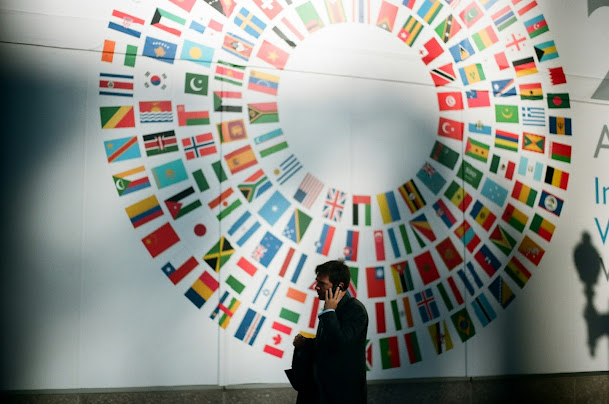Proposal Example of Establishing a Greenfield Production Facility
Introduction
The proposal, to establish a Greenfield production
facility for Acme, a U.S. multi-national enterprise (MNE), in either Italy, a
member of the European Union (EU), or in Turkey, a non-member of the EU,
provides a recommendation as to which alternative, as well as the rationale for
the decision. This proposal looks at
each country’s currencies, trade policies, culture, political and legal components,
in weighing the decision for the nonpareil choice.
1.0 Currency
of Italy and Turkey
The bulk of the savings was from the
reduction in transaction costs from currency exchanges by firms that import or
export to or from other countries. Another advantage was the elimination of
exchange rate volatility between member nations, in addition to, preventing
speculation and competitive devaluations, which were the main culprits of
inflation and high interest rates. On
the other hand, one of the major problems in member nations switching to a
single currency was giving up their rights to change economic and monetary
policies to eradicate any economic downturns at home; likewise,
exchange rates could not be adjusted by the individual countries to aid in
regional economic upturns.
There is also the possibility of one
nation in the EU being in a recession, which would prove to be quite difficult
for that country because to change EMU monetary policy would impair other
countries. Nonetheless, by adopting a
single currency economy throughout Europe, the economies’ and business cycles
are linked together, which in turn, alleviating economic downturn versus
stability of the member nations. One of the
major concerns of Italy, who in recent times is the financial crisis, which has
hit home in Italy, and Prime Minister Silvio Berlucsconi has stepped down, due
to parliament’s approval of new austerity measures to try to ward off an
economic collapse for the euro zone’s third largest economy. Mr. Berlucsconi will join his Greek
counterpart George Papandreou, as fear rises in the euro zone that Italy Greece ,
who are part of PIGS (Portugal ,
Italy , Greece , and Spain ),
and now Italy may be joining
Greece
Every unit of Turkish currency (TL) equals 100 Kurush; However, Kurush
is seldom used because inflation is so high in Turkey
1.1 Trade Policies in the EU and Turkey
“Europe
is the world’s largest trading bloc, accounting for one-fifth of global trade." A single trade
policy is set up for the 27 member States of the European Union, who share a
single border and market. This empowers
the European Commission (EC) when it talks trade with partners’ of the EU. The Commission acts as
the negotiator for one negotiation, which means one agreement, and not 27
different trade rules with each partner of trade. In the World Trade Organization (WTO), the
Commission represents the EU member States, providing unity to mould an open
global trading system, which promotes fair rules and to make sure those rules
are followed. At the
heart of trade policy is the WTO system.
This system allows all the members a fair and equal voice in negotiations
and the making of trade rules, and new WTO trade agreements.
Europe’s trade policy benefits
European companies’ growth by creating jobs and investment opportunities, even
for the smallest companies, who want to trade outside of Europe; due to
Europe’s affluent communications and transport systems. New markets for European exports are open
through Europe ’s trade policy; providing a
reduction in tariffs and other blocks to the markets incipient partners. The EC works daily to ensure that any rifts
or barriers encountered by exporters are removed, to not only abate piracy and
counterfeiting of goods, but also expedite new opportunities in European
investment.
In contrast, Turkey Turkey Turkey
There are no limitation and
or/approval for non-residents who wish to buy/sell securities at the Istanbul
Stock Exchange, as well as open foreign exchange deposit accounts at
banks. Under Turkish currency
legislation, free transfer of profits, royalties and fees, dividends, license,
repayment of loans and interests, and proceeds of sale and liquidation is
unrestricted. Turkey
1.2 Cultures of Italy and Turkey
When one
thinks of Italy , they may
see romance on the canals of Venice Italy Italy Italy
One factor is to select the best
people for negotiations because Italians prefer to do business with only the
top people in a firm. On the
other hand, they also prefer to do business with people they trust, so it is
important to build strong relations with Italian businesses. Bureaucracy in Italy
One interesting factor is that for
the whole month of August Italy Italy
Doing business in Turkey is a lot like doing business in Italy
1.3 Politics and Economies
The government agency, the Italian
Institute for Foreign Trade (I.C.E., Istituto
nazionale per il Commercio Estero), is responsible for business opportunities,
promotion of trade, and industrial cooperation between Italy
It is interesting to note that Turkey Turkey Turkey
1.4 Tax Laws in Italy and Turkey
The tax rate in Italy
Conclusion
By analyzing
Italy and Turkey’s currency, exchange and inflation rate, trade policies,
culture, politics, tax laws, and economy, a viable choice has been made as to
which country a Greenfield production facility in Italy would provide the most
beneficial and successful outcomes for Acme.
Even though Turkey Italy
is going through a financial crisis, and the threat of default is facing the
world’s financial economy, the choice for Italy Italy Turkey
is part of the WTO, like Italy Greenfield
in Italy , who are part of
the 27 member States of the EU, would be the successful choice because of the
free trade zone, meaning, easy market access in each country of the EU, a
benefit that Turkey

Comments
Post a Comment